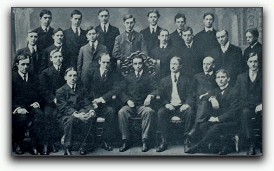Critical Mass of Minorities on Campus
The Case of Julian Abele
by Chett
October/November 2003
Mass of what, exactly?
Take a university, or small college, or even a college within a university (like the “college of Architecture” at a big university). Now imagine there is exactly one black student in the student body. Presumably this student is paying tuition to the university for a college education, so what does his skin color have to do with anything? More importantly, what does the skin color of his classmates have to do with the quality of his education?
Only if this student defined himself by the color of his skin would it matter that he was the only “representative of his race” in the school. Therefore, it would seem that this idea of needing a “critical mass” of minority students would only have bearing on those students who define themselves by race. All the other students (regardless of race) are just there to get an education and hopefully a diploma.
 |
The Power of One
He studied architecture at the University of Pennsylvania, and was one of a few black students on campus. A gifted artist, he won several awards in juried competitions, and was elected President of the Architectural Society by his all-white classmates (see photo at right).
The year was 1902.
Abele went on to become Chief Designer at the all-white architectural firm of Horace Trumbauer, designing the Free Library of Philadelphia, a significant portion of Trinity College (which became Duke University), and Widener Library at Harvard University, to name but three.
It should go without saying (but we’re going to say it anyway) that Julian Abele succeeded because of merit. How old-fashioned.
Copyright © 2003 The Multiracial Activist. All rights reserved.

